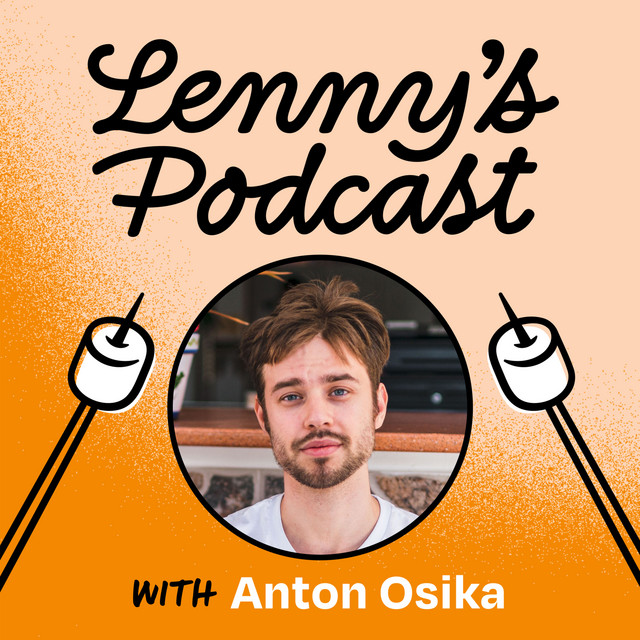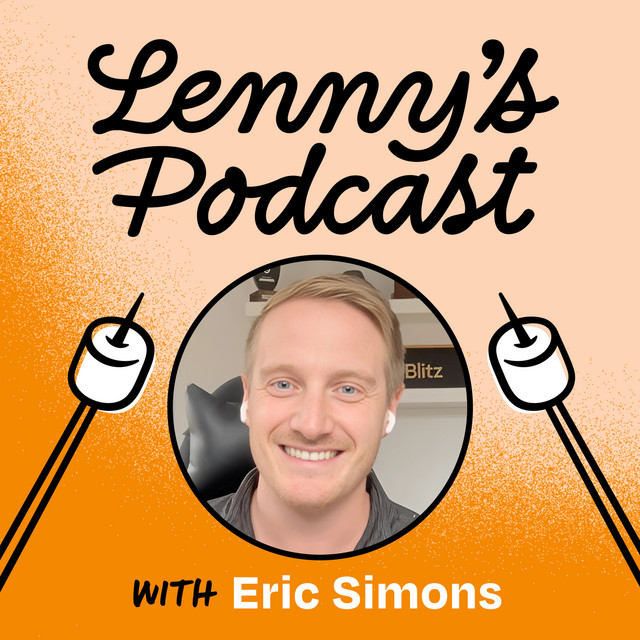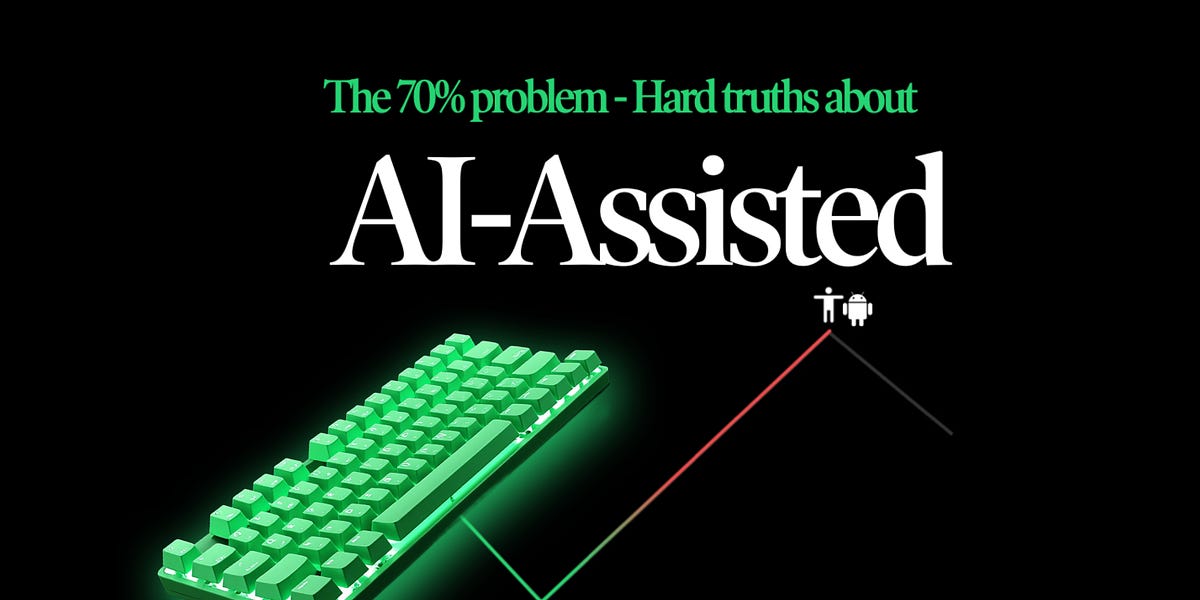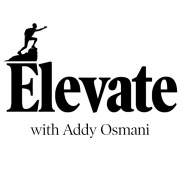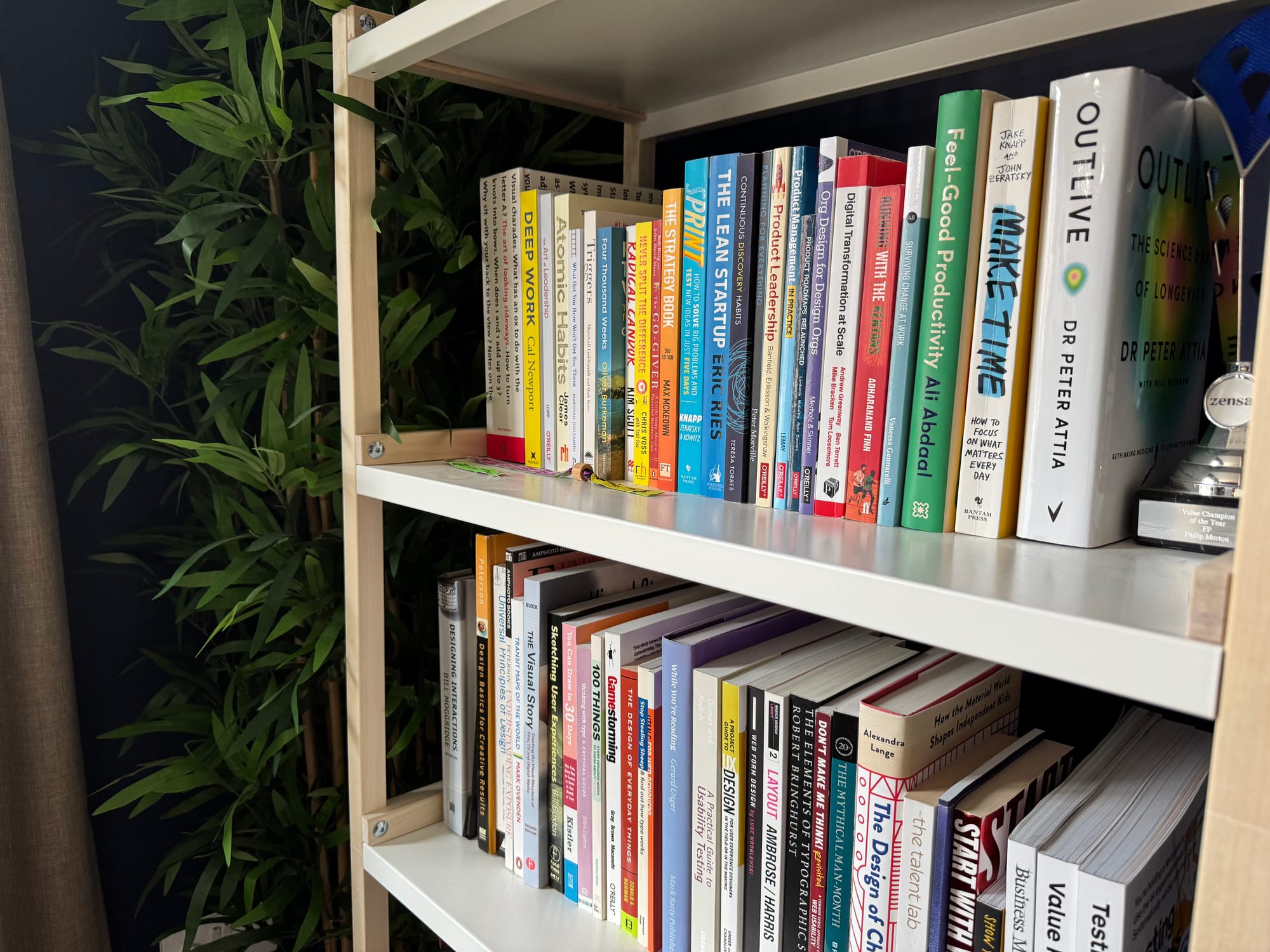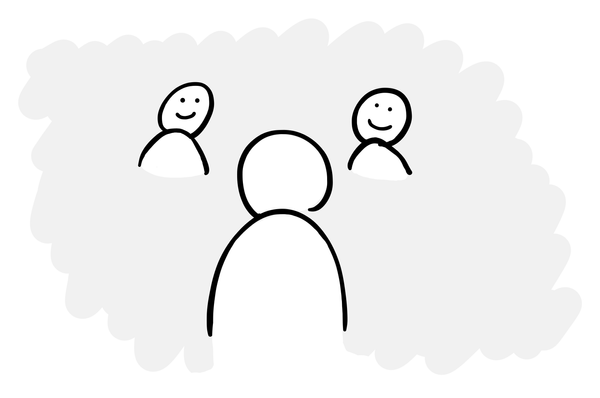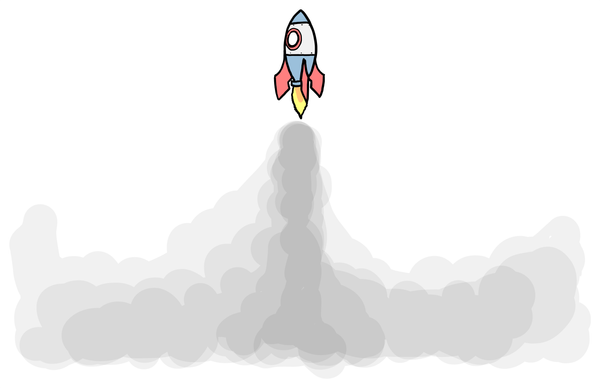How AI coding is reshaping product teams
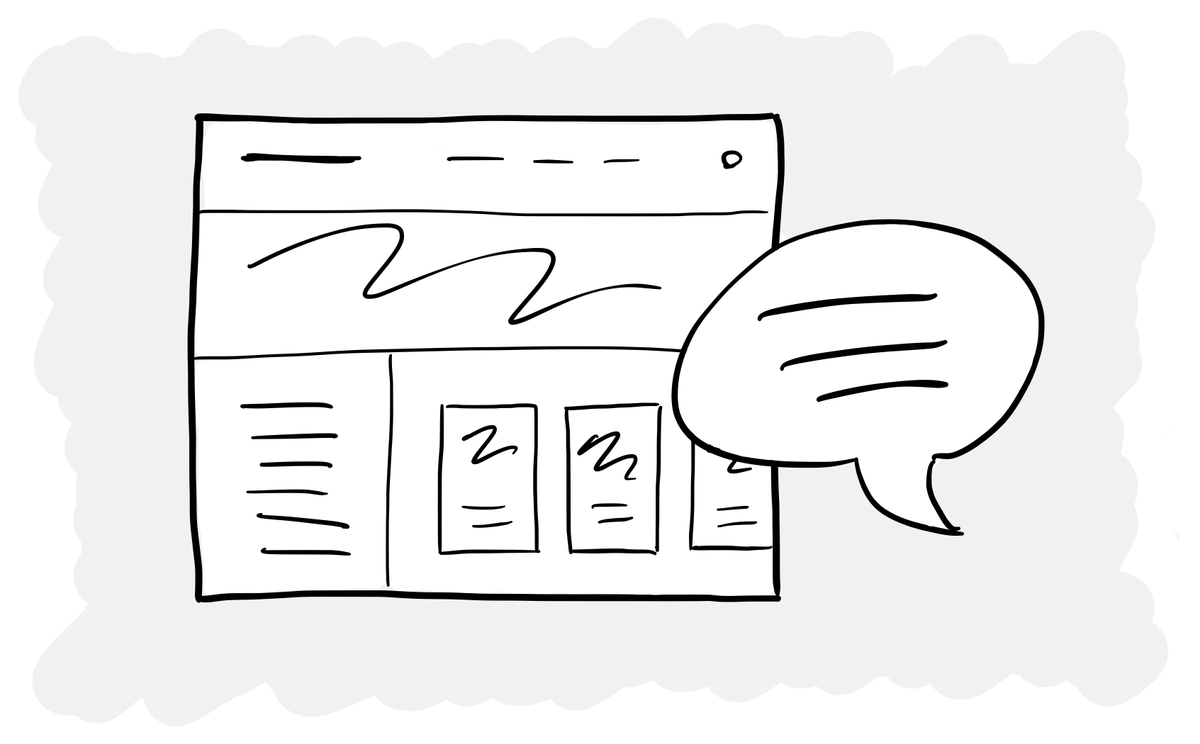
Coding is the area in which AI is having the biggest immediate impact. 63% of professional developers use it (and that’s data from May 2024).
There are two types of tools emerging:
1. AI coding assistants
Tools like GitHub Copilot, Cline and Cursor support developers in their day-to-day work, helping to suggest code, debug issues, generate tests and so on.
2. Prompt-to-code tools
Tools like Bolt, Lovable and v0 can create a fully functioning web or mobile app from a prompt in seconds. Most also allow you to import a Figma file as a starting point.
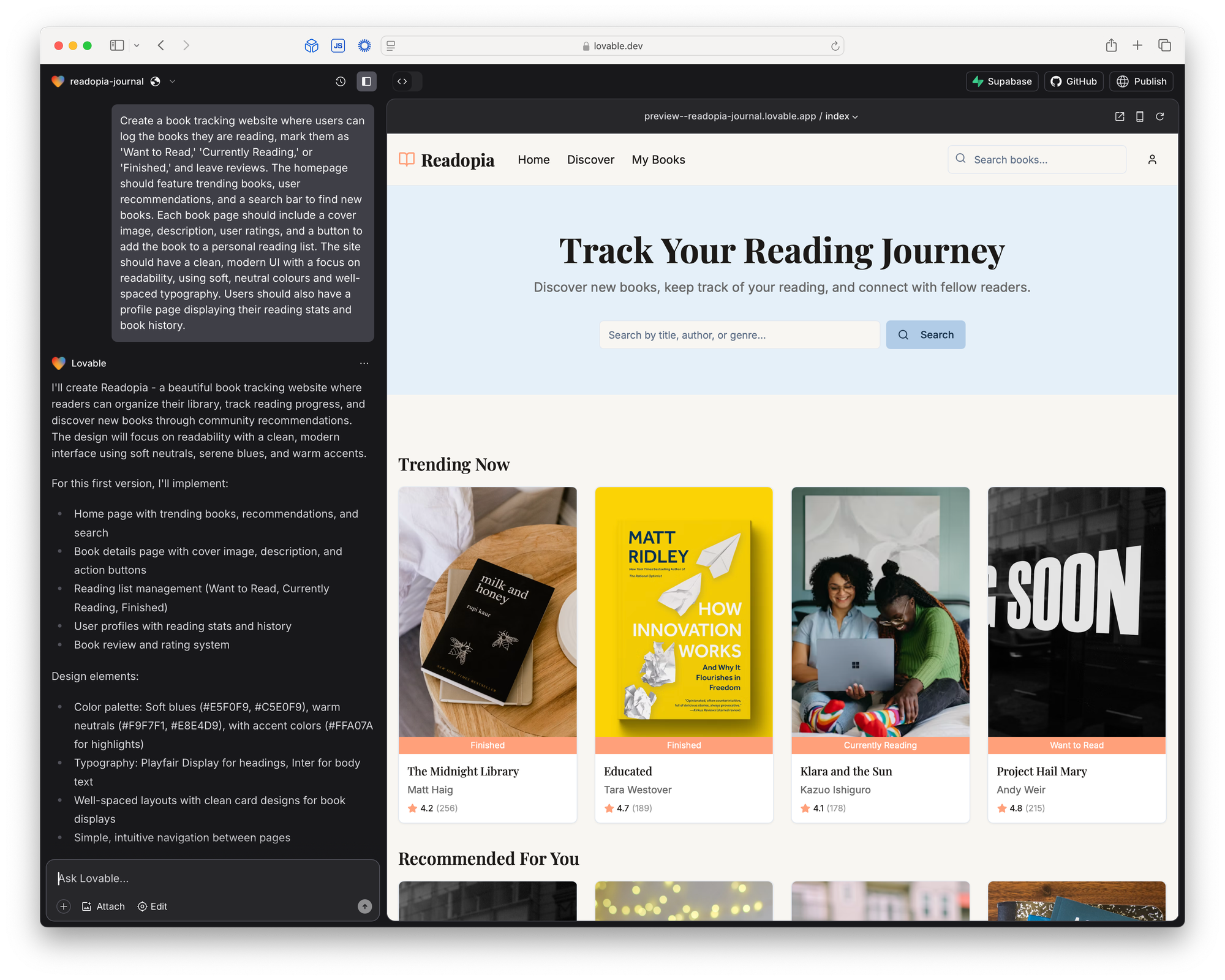
These are the tools you can use for ‘vibe coding’ - just type or talk to the AI and it’ll make whatever you fancy. Companies making these tools are amongst the fastest growing startups in the world (ever).
What does all of this mean for product development?
Consequence 1: squads won’t need as many developers
In A Vision for Product Teams, Marty Cagan predicts that “product discovery will become the main activity of product teams, and gen AI-based tools will automate most of the delivery”.
…over the next 3-10 years we’ll continue to see the average product team drop from something like 8 people (6 engineers, a product manager and a product designer), down to 3 (a product manager, a product designer, and an engineer).
Smaller teams work better due to the reduced communication overhead. With fewer people per team, an organisation could also work on more problems with the same headcount as before (or simply cut costs).
Consequence 2: the democratisation of coding
Tools like Lovable give non-technical people the ability to create prototypes at a much higher fidelity than before. Think of it like the democratisation of research, but for code.
Instead of a clickable Figma prototype - where you can’t even type in input fields - you can have a fully functional website or app. Think of how much better feedback will be from user research if people can use something that actually works.
This will mean that when you’re testing business ideas, you’ll be able to reduce uncertainty and risk to a much greater extent than before. You can validate and iterate early stage concepts much further, before you have to commit to spending developer resource to make the thing for real.
What does it mean for skills and careers?
If product squads are getting smaller and taking discovery further, then the skills people need to succeed in those teams are slightly different to today.
Being a generalist is going to be increasingly valuable, as Anton Osika, CEO of Lovable mentioned on Lenny’s Podcast:
Doing a bit of everything, being a generalist is, I think, much more important than it used to be. If I’m putting together a product team today, I will really obsess about getting as many skillsets as possible for each person I hire.
In a future where AI can do more specialised work, it makes sense to broaden your skills and be able to contribute to more of the product development process rather than just research or design.
If you're a researcher, learning more about market analysis, experimentation or product strategy could set you apart. If you're a designer, picking up skills in research or growth strategy will make you even more valuable. Whatever your starting point, broadening your toolkit is the best hedge against teams getting leaner and roles becoming more fluid.
Expertise is still essential in the age of AI, which feels like a contradiction to the above, but I think it’s more important than ever to be ‘T-shaped’.
Broadening your skillset through continuous learning will only serve you in good stead as product teams evolve. The most indispensable people will be those who can flex across roles and think beyond their job title.
Further reading (and listening)

